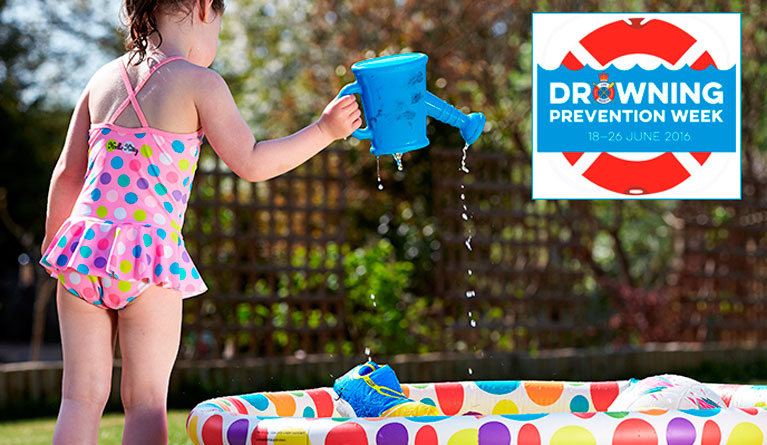Did you know that more than 400 people drown in the UK each year? Did you know that nearly 60% of these are children and young people? Did you know that it is possible to drown in just 2cms of water?! Nope, neither did we and that’s why Drowning Prevention Week (18th to 26th June) is such an important event in the UK – helping to prevent drownings both in the home and on holiday through spreading water safety advice far and wide, and teaching parents and little ones how to stay safe near water.
Drowning Prevention: Water Safety at Home
It’s unthinkable isn’t it. Home is the one place that your child should be safe and secure, but accidents are a risk and so we’re really hoping you’ll check out these safety tips from the Royal Lifesaving Society UK to make sure that the unthinkable doesn’t happen…
- Always use self-closing gates, fences and locks to prevent children from gaining access to pools of water
- Securely cover all water storage tanks and drains
- Empty paddling pools and buckets as soon as they have been used. Always turn paddling pools upside down once empty
- Always supervise bath time (never leave children unattended). Empty the bath as soon as possible after use
- Vulnerable adults and people who suffer from sudden seizures should consider using showers rather than baths
Drowning Prevention: Water Safety on Holiday
Sun, sea and sand – pools, baths and a whole host of risks. By following these safety tips you can make sure that your little ones enjoy their holiday, and make sure that you all return home in one piece rested and relaxed, rather than regretful…
- When researching your holiday, or arriving at the destination if you haven’t yet done so, check the safety arrangements of any water-based activities and if there is lifeguard cover at the pool/beach
- Check bathing sites for hazards, check the safest places to swim and always read the signs – find out what local warning signs and flags mean
- Make sure the whole family can swim
- Swim with any children in your care – it’s more fun and you can keep them close and safe
- Never swim alone
- Follow the pool rules
- Take time to check the depth, water flow and layout of pools
- Never enter the water after drinking alcohol
- On beaches check when the tide will be high and low and make sure that you won’t be cut off from the beach exit by the rising tide. Also be aware of dangerous rip-currents
- Inflatable dinghies or lilos are a well-known hazard – each year there are drownings as people on inflatables are blown out to sea. Do not use them in open water
- Do not swim near to or dive from rocks, piers, breakwater or coral
- Swim parallel to the beach and close to the shore








Leave A Comment
You must be logged in to post a comment.